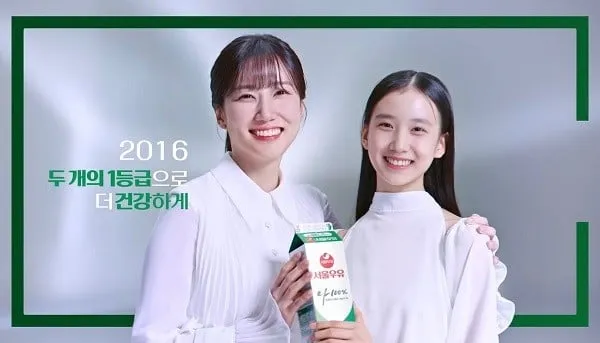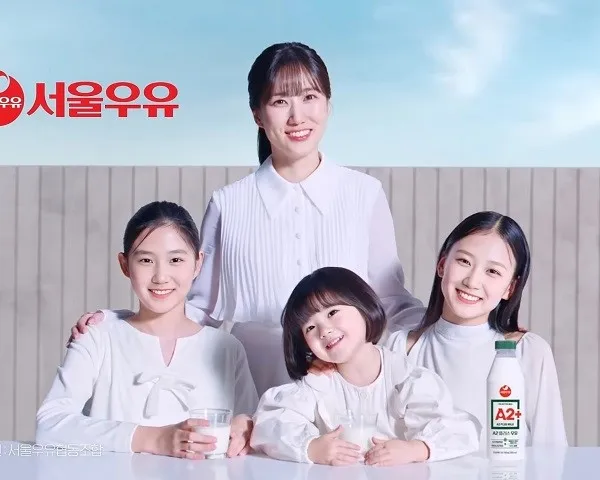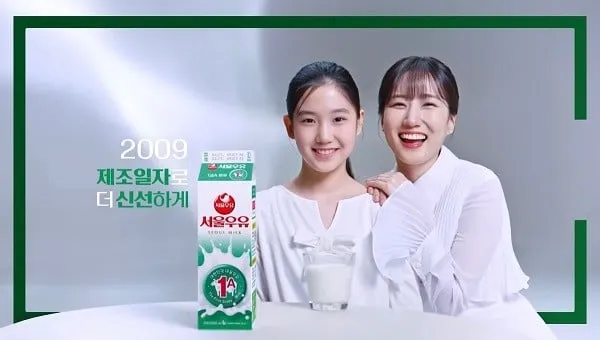
In recent times, there has been a notable rise in instances where deepfake technology and CG are utilized to improve the quality of productions.
The milk commercial featuring Park Eun-bin meeting her younger self attracted a lot of attention due to the remarkable resemblance between the actress and her younger self.

The use of deepfake technology powered by AI deep learning in a commercial featuring Park Eun-bin and three child actresses has sparked discussions among netizens.
The purpose of Park Eun-bin’s encounter with her younger self was to highlight 87 years of history. This sparked a flurry of reactions from netizens, with many expressing amazement at the technology used to recreate her childhood appearance through AI. Others noted the striking resemblance between the two, likening it to a glimpse into her journey of growth.
Deepfake technology is being actively utilized in advertisements, works, and news. It involves the use of artificial intelligence to synthesize facial features or specific body parts.

This term is a combination of “deep learning”and “fake,”and describes a technology that employs deep learning to autonomously learn from external data and generate facial features or specific body parts of real individuals.
Thanks to advancing technology, it has become possible to combine the faces of various actors to create entirely new characters.
In the JTBC show “Welcome to Samdal-ri”, deepfake technology was used to recreate the appearance of the late Song Hae from the 1994 show “Korea Sings”. Similarly, in Netflix’s original series “A Killer Paradox”, an actor portraying a younger version of Son Suk-ku was also created using deepfake technology.
AI cover songs have gained widespread attention in the music industry. A quick online search yields a plethora of AI cover songs. While utilizing AI technology to add complexity to scenes can enhance the overall experience, there are also valid concerns surrounding its use.
Without careful examination, “deepfake technology”and “AI cover songs”can easily be misidentified as real people, creating potential dangers. As a result, there are growing discussions surrounding the issues that arise from the use of these technologies.

With the rise in deepfake crimes, celebrities are also being targeted. Recently, Song Eun-yi called for immediate action against online phishing scams that use celebrities’ identities, speaking at a press conference.
She stressed the importance of national awareness and implementing systemic changes, declaring, “It is crucial that we acknowledge the potential for deepfake technology to be used for heinous crimes. We must take preventative measures and increase societal consciousness to prevent future harm and avoid mourning the consequences of these crimes.”
Moreover, as technologies such as deepfake and AI continue to advance, there is growing concern over their potential to exacerbate polarization within the entertainment industry. A-list celebrities may benefit from using AI models to increase their profits, but this could lead to a decline in job opportunities for lesser-known actors.
In the previous year, the Screen Actors Guild also acknowledged these concerns. Although these technologies offer numerous benefits, worries about their possible exploitation for criminal activities and their impact on polarization persist. Efforts are being made to monitor the potential outcomes of this influence in the future.




Leave a Reply